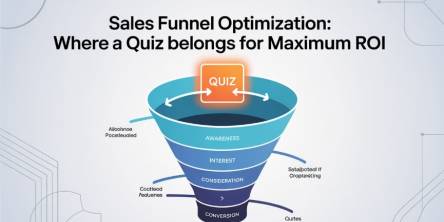Popular Use Cases for Java in Different Industries

Java is a widely-used programming language that has become increasingly important for various industries. Its portability, security, and scalability have made it popular for developing enterprise-level applications, web applications, mobile apps, and more. Java is essential in the financial sector, where it is used to create trading platforms, risk management systems, and other critical applications. It is also widely used in the healthcare industry, where it is used to develop electronic health records and other patient care applications. Java's flexibility and versatility make it a popular choice across many industries, and it is expected to remain an essential tool for developers for years to come.
Now, to help you better understand the value that Java brings to the table for various industries, let us take a look at the most popular use cases and examples:
- Healthcare: Java is widely used in healthcare because of its security and scalability. Electronic health records (EHRs) are a common application of Java in healthcare. EHRs provide a digital record of patient health information, including medical history, diagnoses, and treatment plans. Java can be used to develop EHR systems that securely store and manage patient data, providing healthcare professionals with quick and easy access to critical patient information. For example, the Veterans Health Information Systems and Technology Architecture (VistA) is a Java-based EHR system used by the United States Department of Veterans Affairs to manage patient health records.
- E-commerce: Due to its scalability and ability to handle high traffic, Java has also become a favourite in the e-commerce sector. Many popular e-commerce platforms like Magento and Shopify are built using Java. These platforms allow businesses to create online stores and manage product listings, orders, and payments. Additionally, Java is used for developing payment processing systems that securely handle online transactions. PayPal also uses Java extensively in its backend systems to manage transactions and ensure security.
- Automotive: In the automotive sector, Java is used for developing software that controls various aspects of a vehicle, such as an engine management and entertainment systems. For example, the Toyota Entune infotainment system uses Java to provide multiple features, including navigation, music streaming, and voice recognition.
- Retail: Yet another sector where Java has found immense popularity is retail. Java is commonly used to develop point-of-sale (POS) systems and inventory management software. POS systems enable retailers to process sales transactions, manage customer data, and track inventory levels. Java's ability to handle high traffic and provide a secure environment make it a popular choice for building these systems. For example, the NCR Counterpoint POS system, used by many retailers, is built using Java and provides a range of features, including sales processing, customer management, and inventory tracking.
- Financial Services: Java is widely used in financial services, including stock trading systems, banking applications, and payment processing systems.
- Education: Java is used in education for teaching programming and software development and is the language used in the popular AP Computer Science A exam.
- Government: Java is used in government applications, including tax filing systems, social security systems, and public safety systems.
As the above discussion demonstrates, Java is a versatile and widely-used programming language that has become increasingly important across various industries. Its security, scalability, and portability have made it a popular choice for developing critical applications and software systems essential for business success. As the global economy becomes increasingly digital, Java's importance will continue to grow. Companies that embrace Java development will be better positioned to optimize their operations, improve efficiency, and achieve better business results. To achieve this, companies may need to seek the assistance of a Java development company to help them develop and deploy Java-based solutions that meet their specific needs and requirements.
Similar Articles
In 2026, Microsoft Excel continues to power the U.S. business ecosystem, supporting over 80% of financial modeling, 70% of operational reporting, and nearly 65% of analyst-driven decision workflows across enterprises.
The rapidly growing volume and speed of digital transactions have had a whole lot of implications for businesses
We live in the age of cloud computing. That's plain to see. However, what may escape many are the operational and financial challenges of managing multiple independent clusters.
Times have changed and how! Take modern technology and the fast-paced digital economy, it is driving. Given the market conditions, any company's infrastructure has become more than just a technical detail.
It has been for everyone to see that the modern digital economy is distinguished by high volume, real-time financial transactions.
Business success has become reliant on efficiency and agility of the underlying technology infrastructure. Clearly, companies now depend on cloud computing to provide seamless services while managing exponential data growth.
Hospitals operate in environments where availability and patient safety are paramount at all times. As medical supply chains expand and regulatory oversight becomes more demanding, manual tracking methods introduce delays and risk.
Every sales funnel has one core goal: turn attention into revenue as efficiently as possible. Yet many funnels leak value at critical stages—visitors bounce, leads go cold, and sales teams chase prospects who were never a good fit.
Decentralized Finance (DeFi) has transformed how users earn passive income through blockchain-based financial systems. Among its most popular use cases,









